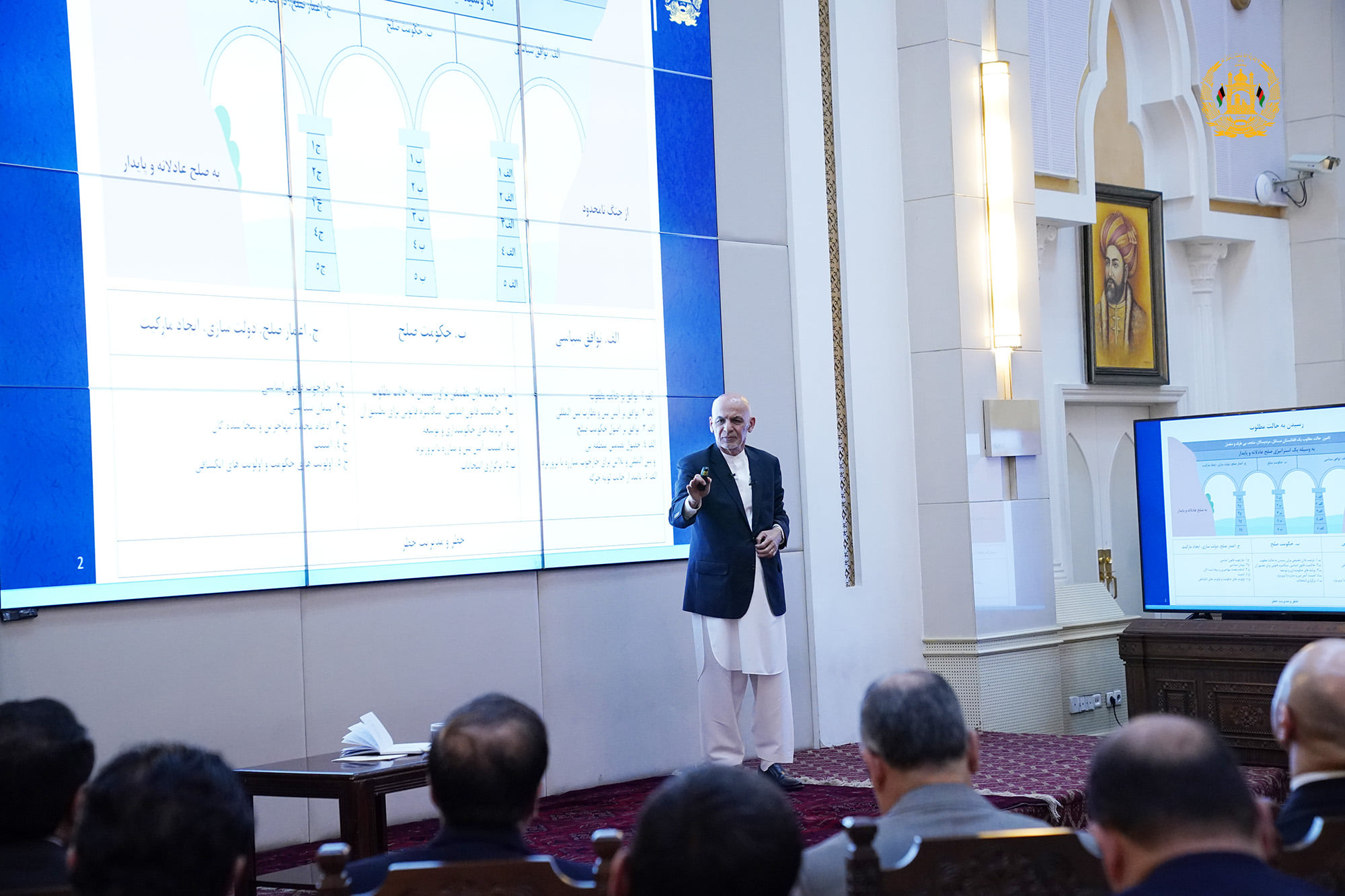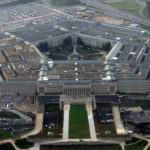President Ashraf Ghani in a message recorded on Tuesday but aired Wednesday defended his administration’s foreign policy legacy and peace plan, arguing that Afghanistan needs a dignified peace that could determine the country’s bright future, but not a peace that could isolate Afghanistan in the international arena.
While explaining his peace plan, Ghani said that no one from outside Afghanistan will be allowed to designate the leader of the country.
“On behalf of this society, I promise to undertake political negotiations as a national and Islamic commitment,” said Ghani.
On the UN’s role in Afghanistan, Ghani said: “The UN has no alternative but to play a role in peacebuilding for Afghanistan, and the lasting peace and stability which are hoped to come to Afghanistan would need the guarantee of the UN Security Council and the entire international community.”
“Only the Afghan people will determine their future leader, no one can designate the future leader of Afghanistan from outside, this is our right and the principle of our Constitution and the desire of our nation,” said Ghani.
Ghani stated that the ANDSF has defended democracy in Afghanistan at the cost of their blood.
He said the ongoing war in Afghanistan is not a jihad, but a war for political purposes.
Ghani says that the Afghan government is fully ready for the upcoming summit in Turkey. He states that the Afghan president is responsible for protecting the Constitution.
A Loya Jirga, Ghani said, is an important forum to address national issues and to avoid risks facing the country. He says that a national dialogue about peace has started, but it should be a dignified peace.
“Afghans need a political agreement that will bring the process to a successful conclusion,” said Ghani.
“If the Taliban continue to insist on their position, the Afghans here will do the same. The Taliban should agree to a ceasefire, which is the fundamental aspiration of the entire nation,” said Ghani.
Ghani said that if there are assurances for real peace in Afghanistan, he and his colleagues are ready to shorten the tenure of the government and go toward elections.
Meanwhile, the High Council for National Reconciliation (HCNR) on Wednesday said that the agenda of the upcoming UN-led conference on Afghanistan in Turkey will be outlined in a manner in which preference will be on the end of war, ceasefire, and the settlement of the conflict based on a joint agreement.
The deputy head of the HCNR, Haji Din Mohammad, told TOLOnews on Wednesday that all preparations have been made and soon details of the structure of the delegation for the conference will be shared.
President Ashraf Ghani’s three phases peace plan included (1) making peace or holding talks with the Taliban, (2) building peace – with language that hints at a transitional government, and (3) sustaining peace, which indirectly refers to a post-transitional government situation.
Ghani in the peace roadmap plan also called for the protection of Afghanistan’s Constitution, saying the Taliban should not provide a safe haven for terrorist groups in Afghanistan, should accept Afghanistan’s military and non-military institutions and respect women’s rights.
This comes as efforts are underway in Doha to set a date for the Turkey conference. Involved parties have yet to reach an agreement on the time and agenda of the event.
“We will have a special (response) from our side, but whether something will be presented there or not, we will make a decision later,” said the Taliban spokesman in Doha, Mohammad Naeem.
Sources said that a potential date for the upcoming conference in Turkey is April 16, but the involved parties have not reached an agreement.













